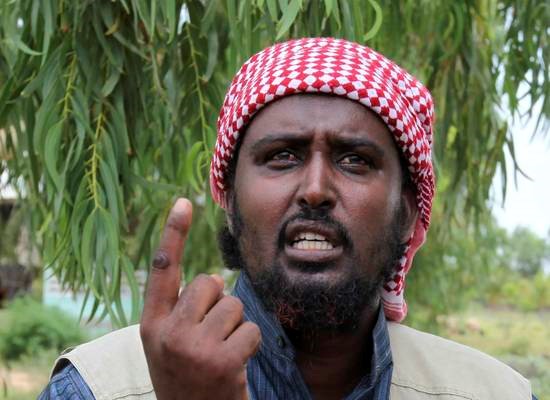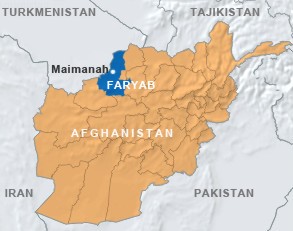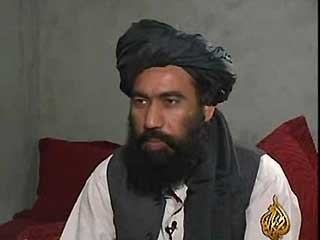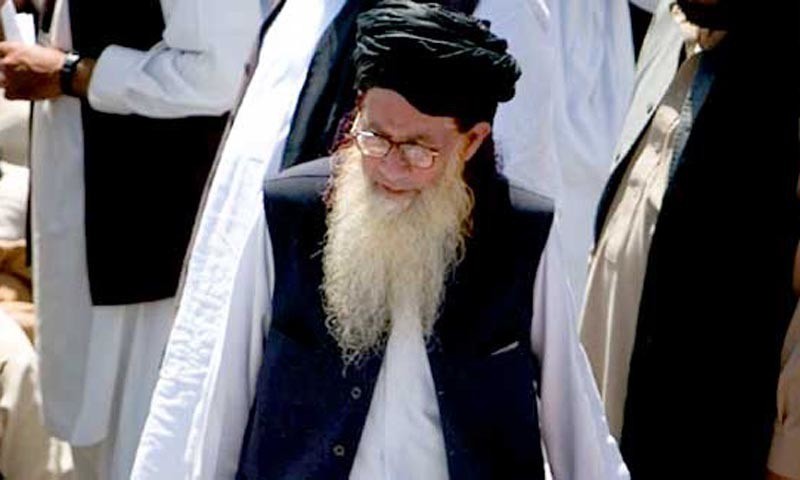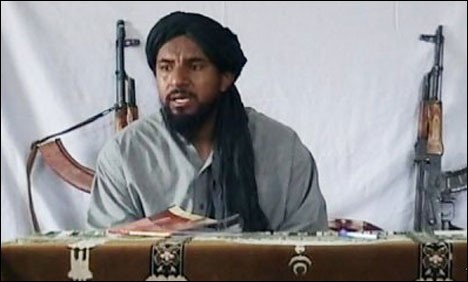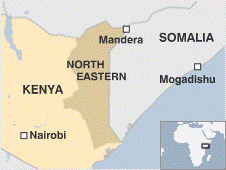Andrew McGregor
June 12, 2009
As Pakistan’s military continues to consolidate its control over the Malakand region of the North-West Frontier Province and talks of continuing on into South Waziristan, there is some apprehension in neighboring states that foreign fighters based in northwest Pakistan may begin leaving their now-endangered bases for home. Various reports claim foreign militants are on the move towards the Central Asian states in the aftermath of the Pakistan Army’s offensive against Islamist extremists in the Swat Valley (Jang [Rawalpindi], June 3; Millat [Dushanbe], May 21; Ozodagon [Dushanbe], May 21). A new military operation in eastern Tajikistan suggests the Central Asian nation is responding to the return of such extremists under the command of veteran Tajik jihadi leader Mullo Abdullo Rakhimov, though the Dushanbe-based government says it is only conducting routine anti-narcotics operations.
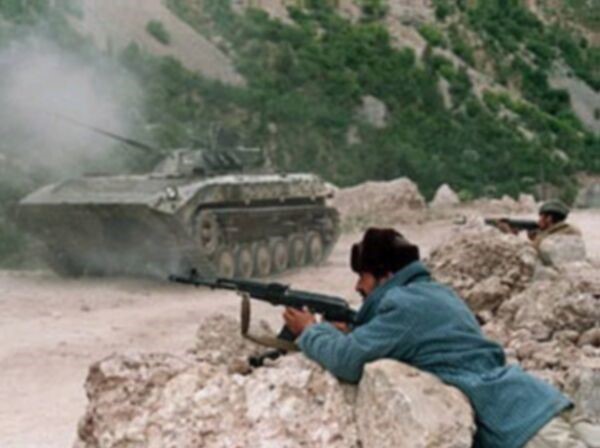 Fighting during the Tajikistan Civil War (1992-97)
Fighting during the Tajikistan Civil War (1992-97)
During Tajikistan’s 1992-1997 civil war, Mullo Abdullo was an important Islamist commander, operating as part of the United Tajik Opposition (UTO), an awkward coalition of liberal democrats and Islamists. If Abdullo has returned, it would mark his first known presence in Tajikistan since September 2000, when a government offensive in the Darband region destroyed most of his group, with over 40 fighters captured. Mullo Abdullo himself was reported captured in this encounter. He is supposed to have been sent on to Dushanbe, but was apparently amnestied and released, taking advantage of his unexpected freedom to leave for Afghanistan whereby according to some accounts, Ahmad Shah Masoud made him a commander in the Northern Alliance. Other reports say he joined the Taliban and was captured by government forces in Kandahar province in 2002, after which little was heard of him (Asia Plus, May 23; RFE/RL, May 21). Tajikistan authorities were unable to confirm reports of Abdullo’s detention in Afghanistan (Interfax, May 22).
The Legacy of Tajikistan’s Civil War
Government troops are currently at work in the Rasht Valley, in the western part of the Gorno-Badakhshan Autonomous Oblast (GBAO). The Garm district of the Rasht Valley has a long history as a center for Islamist militancy, dating back to its days as an important center for the anti-Soviet Bashmachi rebellion of the 1920’s. During the civil war the Garmis sided with the Islamists and suffered severe retribution for their efforts. The Rasht Valley was also the main operational base for Mullah Abdullo’s forces during the war.
The GBAO, located in the Pamir Mountains, occupies 45% of the territory of Tajikistan but has only 3% of the total population. GBAO was created by the Soviets in 1925 and joined the Tajik Soviet Socialist Republic in 1929. During the civil war, the GBAO was a stronghold of Islamists affiliated with the UTO. Eastern Tajikistan is also the home of the Pamiri, an Isma’ili Shi’a people who were targeted for massacres after trying to separate from Tajikistan in 1991. The Pamiris were mostly supporters of the UTO.
Roughly 100,000 people were killed and over a million displaced in the 1992-1997 civil war, which pitted democratic reformers and Islamists against the Soviet elites of the northern Leninabad and central Kulyab regions who sought to continue their dominance of the Tajikistan government in the post-Soviet era. By 1993 the Garmi and Pamiri opposition forces were suffering from serious reverses on the battlefield and a violent campaign by government forces determined to drive Garmi and Pamiri civilians from Tajikistan. Both civilians and Islamist fighters took refuge across the border in Afghanistan, where the Islamist fighters received arms and assistance from ethnic Tajik Ahmad Shah Massoud, leader of the Northern Alliance military forces. The fighters also received religious training in Pakistan and Afghanistan. A Russian intervention in the civil war brought Afghan nationals north to fight the Russians around Dushanbe in 1996. When a negotiated settlement brought an end to the war in 1997, Mullo Abdullo was one of a number of Islamist commanders who refused to lay down arms, using bases in Afghanistan to mount cross-border attacks on Tajikistani security forces in the Rasht Valley. There are claims that Abdullo participated in raids on Kyrgyzstan in the late 1990s as a field commander in the Islamic Movement of Uzbekistan (IMU). [1]
Operation Kuknor
According to government sources, Operation Kuknor (Operation Poppy) began in the Rasht Valley on May 15 and is expected to continue until November, an unusually long period when compared to previous anti-narcotics operations. Spokesmen say the operation is designed to interdict narcotics trafficking and eliminate poppy cultivation, but this explanation has raised eyebrows in the isolated valley, which has never been part of any known smuggling routes. Its climate is also generally considered unfavorable for the cultivation of poppies. The Tajikistan Interior Ministry expanded on the reasons behind the operation:
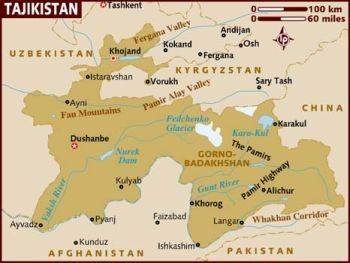 “Due to favorable weather conditions large fields of opium poppy plants and other drugs of the opium group were observed in the Afghan (northeastern) province of Badakhshan… A wide-scale operation is being carried out in Tajikistan, including in the Rasht valley, as part of the Poppy 2009 operation in order to prevent drug smuggling cases from the neighboring country and to uncover cases of cultivation of drug plants. The Interior Ministry does not have information about armed people who allegedly entered Tajikistan’s territory (Asia Plus [Dushanbe], May 23).”
“Due to favorable weather conditions large fields of opium poppy plants and other drugs of the opium group were observed in the Afghan (northeastern) province of Badakhshan… A wide-scale operation is being carried out in Tajikistan, including in the Rasht valley, as part of the Poppy 2009 operation in order to prevent drug smuggling cases from the neighboring country and to uncover cases of cultivation of drug plants. The Interior Ministry does not have information about armed people who allegedly entered Tajikistan’s territory (Asia Plus [Dushanbe], May 23).”
The operation includes units of the Interior Ministry, the Drug Control Agency, the State Committee on National Security and Customs units. The inclusion of members of the Interior Ministry’s Special Forces is considered unusual for an anti-narcotics operation (RFE/RL, May 21). Tajik Border Guards and Drug Control Agency officers were reported to have seized more than 80 kg of drugs in eastern Darvoz District (along the north-west border of the GBAO) in the opening days of the operation, but a Dushanbe daily reported rumors of fighting between government forces and militants in the same district, noting the government could not give “a clear explanation of the situation” in eastern Darvoz (Nigoh [Dushanbe], May 28; Tojikiston [Dushanbe], May 28).
The Return of Mullo Abdullo
Reports from Russia claimed that Abdullo crossed into eastern Tajikistan several weeks ago and has been canvassing elders in the Rasht Valley for support. The original group of 100 fighters has allegedly grown to 300 (Kommersant, May 25).
A source in the Interior Ministry stated, “It is not known who is spreading such rumors, but we will get to the bottom of this. It is quiet and calm [in the Rasht Valley], no operations are being conducted there except for Kuknor-2009” (Interfax, May 22). At the same time it was denying cross-border incursions by militants, the Interior Ministry reported the discovery of a cache of weapons in a Dushanbe home, including a grenade launcher with 27 rounds, five assault rifles, two grenades and a large quantity of ammunition (Interfax, May 23, 2009).
Whether by design or coincidence, there have recently been a number of arrests of high-profile former associates of Mullo Abdullo on charges that appear to have been ignored for years. On May 17 the Tajik Interior Ministry announced the arrest of Muzzafar Nuriddinov and several other former Islamist UTO leaders. Nuriddinov was a well-known associate of Mullo Abdullo in the period 1994-1999 and the timing of his arrest led to increased speculation in Dushanbe over the real intent of the government’s operations in the GBAO (Asia Plus [Dushanbe], May 21). Among other “past crimes” dating back to the 1990s, Nuriddinov is wanted for murdering two policemen with a Kalashnikov rifle. Prior to his involvement with Mullo Abdullo, Nuriddinov was a member of a militant group under field commander Fathullo Tojiddinov, who later became a leader of the Interior Ministry’s rapid deployment unit before being charged with possession of six kilograms of raw opium in June 2007 (Asia Plus, March 18, 2008). Another former member of Abdullo’s command, Djumaboi Sanginov, was arrested on May 31 in Dushanbe for crimes allegedly committed as a member of the UTO in 1996 (Ferghan.ru, June 1).
Another Target for Operation Kuknor?
Other reports claim the operation in the Rasht Valley is directed at arresting former opposition warlord Mirzokhuja Ahmadov for his involvement in unspecified “past crimes.” An attempt last year to arrest Ahmadov resulted in the shooting death of Colonel Oleg Zakharchenko, chief of Tajikistan’s OMON police unit, by one of Ahmadov’s followers. Ahmadov was serving as head of the anti-organized crime unit in the Rasht Valley at the time, a post he received as part of integration efforts following the civil war. During the war, Ahmadov was a well-known UTO field commander. Ahmadov claims Zakharchenko’s death was the result of his men thinking their headquarters was under attack by gunmen. He further claims to have received a verbal pardon from Tajikistan president Emomali Rahmon (Eurasianet.org, February 5, 2008; RFE/RL April 14, May 20).
Conclusion
The Taliban recently warned Tajikistan against providing a new supply route for U.S. and NATO military supplies on their way to Afghanistan (Daydzhest Press, May 28). Nevertheless, Tajikistan agreed to a deal to allow non-military supplies to pass through Tajikistan as part of a vast new northern supply route meant to provide an alternative to the turbulent Khyber Pass of northwest Pakistan (BBC, April 21). If Mullo Abdullo has passed from Pakistan through Afghanistan into eastern Tajikistan, it may be part of an effort by the Taliban to convince Dushanbe to rethink its cooperation with the Coalition.
Speaking at a meeting with EU ministers working on greater cooperation with Central Asian states, Tajikistan’s Foreign Minister, Hamrokhon Zarifi, confirmed the nation’s readiness to support international anti-terrorism operations against the Taliban and al-Qaeda. “Threats by Taliban insurgents do not frighten us and Tajikistan signed an agreement on giving a corridor for the land transit of U.S. non-military goods to Afghanistan” (ITAR-TASS, May 29). Nevertheless, with a recent and sudden outbreak of suicide bombings and other violence in neighboring Uzbekistan raising fears of a return of Islamist fighters to that region, Dushanbe may be making efforts to preempt the penetration of Islamist fighters from Pakistan in force. An anti-narcotics operation would provide useful cover for extensive ground sweeps and the systematic collection of intelligence necessary to prevent Islamist militants from establishing new bases inside Tajikistan’s Rasht Valley.
Note
1. Muzaffar Olimov and Saodat Olimova, “Region early warning report: Political Islam in Tajikistan,” Forum on Early Warning and Early Response (FEWER), July 31, 2001.
This article first appeared in the June 12, 2009 issue of the Jamestown Foundation’s Terrorism Monitor

